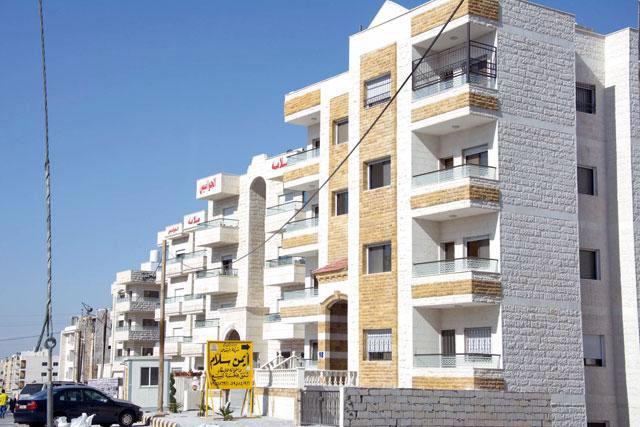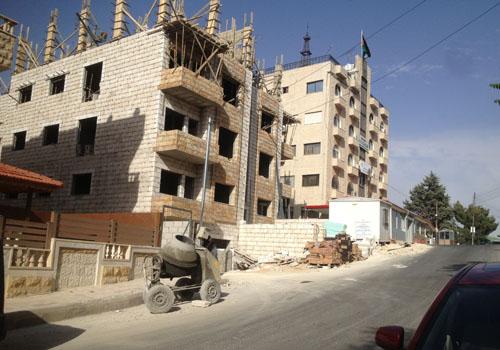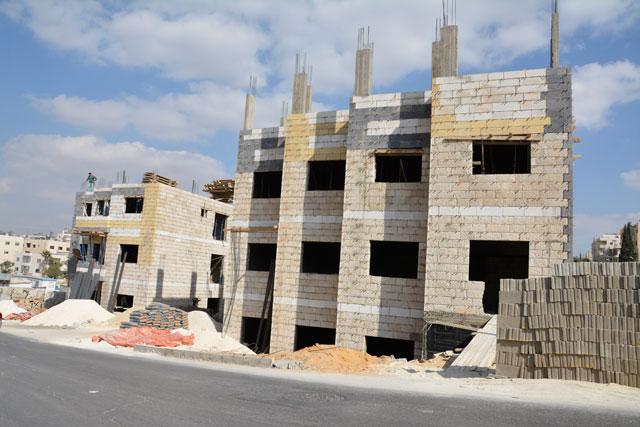You are here
Housing demand set to soar with return of expatriates — real estate investors
By Bahaa Al Deen Al Nawas - Jul 07,2020 - Last updated at Jul 07,2020

Housing companies have been witnessing a high demand for flats and inquiries on locations and costs, according to a real estate investor (JT file photo)
AMMAN — In light of reports about Jordanian expatriates returning to the Kingdom soon as a result of pandemic-induced lay-offs abroad, demand for housing is expected to rise during the second half of this year, a stakeholder in the real estate sector said.
Official sources have predicted a “permanent return” of Jordanian expatriates whose contracts have ended due to the virus crisis, especially in Gulf countries, with the Education Ministry reporting that 92 teachers and their families in the UAE will return in separate groups starting from July 10.
The ministry noted that it has been following up on the matter for a month, adding that the number of individuals set to return, including teachers whose contracts are due to end on Thursday and their family members, amounts to 268.
President of the Jordan Housing Development Association (JHDA) Kamal Awamleh on Tuesday predicted that, with the return of expatriates, demand for apartments will increase. “Many will be looking to purchase houses to settle in and others might seek to rent apartments to maintain their savings before venturing into new jobs or businesses,” he said.
“I expect that there will be more purchasing in the upcoming period before Eid Al Adha,” Awamleh said over the phone, noting that buying an apartment is “an investment”, likening it to purchasing gold.
The JHDA president said that while supply is lower than demand as the past five years have not witnessed investments in many construction projects, the increase in prices will be “slight”.
“Five years ago we sold 43,000 apartments and in 2018 and 2019 we sold 34,000 and 33,000 apartments, but this year we might barely reach 25,000 flats,” Awamleh said, attributing the drop in sales to the three-month lockdown necessitated by the coronavirus, which he said “did not give sellers time to prep the apartments properly for showcasing them to buyers”.
The association president also shed light on problems facing related sectors, such as the closure of cement and iron factories, noting that the halt in the real estate and housing sector impacts others as well. He called for revitalising the sector to provide apartments at affordable prices and help other related sectors develop as well.
Another real estate investor, Zuhair Omari, told The Jordan Times that there have been “a lot of inquiries” from expatriates on social media regarding apartments.
“Housing companies have seen a high demand for flats and inquiries on locations and costs, which shows that demand will be high in the upcoming period,” Omari said.
He predicted the permanent return of expatriates to create movement in the housing market based on the principle of supply and demand, as prices will increase since “the supply is scarce”.
Investors’ reluctance in regards to projects in the housing sector between 2015 and 2019 has led to a more than 60 per cent decrease in supply, Omari said. The economic conditions in the past five years and the increase in construction costs, as well as the “complication of laws” governing the sector, have all contributed to a construction recession.
The government “must pay attention” to interest rates on housing loans and the Ministry of Industry, Trade and Supply “must revise” the price of cement, “which has been very high recently”, Omari said.
Related Articles
Demand for residential units is projected to outweigh supply this summer, according to Jordan Housing Developers Association (JHDA) President Kamal Awamleh, who said prices may surge by 15 per cent “at least”.
Prices of residential apartments are likely to go up by at least 15 per cent this year as demand is projected to outweigh supply, Jordan Housing Developers Association (JHDA) President Kamal Awamleh said Tuesday.
AMMAN — The prices of land have decreased by 10-30 per cent depending on location, President of the Jordan Housing and Development Associati


















